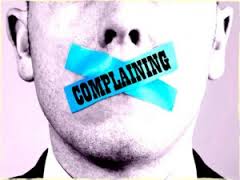
Many legal issues arise in New York relating to rental apartments. Disputes between landlords and tenants are extremely common, and have been discussed in many posts on this blog. Extremely prevalent are situations in which the living conditions of the apartment have deteriorated to the point where the apartment may not be suitable for an individual or family to reside at the premises.
When this occurs, legally, it is considered a breach of the “warranty of habitability.” Whether or not it is explicitly stated in a lease or other document, every dwelling place has an implied warranty of habitability, meaning that the responsible party must insure that the space is livable. Certain conditions which may cause an apartment to be unlivable are lack of heat (especially during the winter), water leaks causing flooding conditions, roaches and other vermin, and excessive noise. This is not an exclusive list, and other conditions may arise which could cause a landlord to be in breach of the warranty of habitability.
However, a question arises when the apartment in question is a cooperative unit. In such situations, the owner of the shares allocated to the apartment unit is usually the same person residing at the premises. In essence, they are both landlord and tenant. What happens legally when such a unit has severe problems which cause them to be unfit for human habitation? Our firm has been consulted by many clients in such situations. The first issue to be resolved is the responsible party for the conditions. Every cooperative has a proprietary lease, which is a document that defines whether the cooperative corporation or the unit owner is responsible to correct certain conditions. For example, a cooperative apartment may have windows which have deteriorated to the point that they no longer seal and keep cold air out of the apartment. The proprietary lease needs to be examined to determine whether the cooperative corporation is responsible for replacing such windows. Other conditions, such as excessive noise, or poor sanitary conditions at the building, may also be the responsibility of the cooperative corporation, rather than the individual owner.











 With the prevalent use of the internet, grievances against cooperative and condominium boards can spread like wildfire. The means used may be standard e-mail forwarded to all unit owners, a specifically developed Facebook or Google chat page, a publically accessible website, or another type of private intranet system.
With the prevalent use of the internet, grievances against cooperative and condominium boards can spread like wildfire. The means used may be standard e-mail forwarded to all unit owners, a specifically developed Facebook or Google chat page, a publically accessible website, or another type of private intranet system.  A recent series of
A recent series of